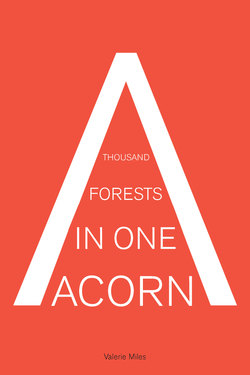Читать книгу A Thousand Forests in One Acorn - Valerie Miles - Страница 35
На сайте Литреса книга снята с продажи.
ОглавлениеJorge Edwards is one of Chilean literature’s most well-known authors. Born in the capital in 1931, he belongs to one of the oldest families in the country: Brits who arrived to the Pacific coast at the beginning of the nineteenth century, some of whom, over the course of the country’s history, would emerge as important figures in the cultural and political spheres.
Edwards inherited his taste for literature from one of his relatives, his great uncle Joaquín Edwards Bello (protagonist of his novel El inútil de la familia), a writer disgraced for his sarcastic portrayal of the aristocracy to which he belonged: “An aunt of mine intuited my inclination toward writing. One day on the sly she showed me my uncle Joaquín’s books. My father spoke of him with great irritation. He never referred to him simply as tío Joaquín, no, he always added an adjective. He was Useless Joaquín.”
Edwards’s father didn’t want a similar future for their son; they sent him to study at the school Compañía de Jesús, where he had as a teacher Father Hurtado, a priest who was canonized by Benedict XVI in 2005. Later, after finishing his degreee, he continued his education in the Law Faculty at Universidad de Chile and began his long career as a diplomat and writer.
He made his literary debut in 1952 with the book of stories El Patio; his diplomatic debut came ten years later, when he was sent to Paris as secretary to the Chilean embassy. In both cases, his name was associated with the two dominant currents in the literary panorama of the time, both in Chile and in the rest of Latin America and Spain: on one hand, there was the generation of 1950, and on the other, the boom, which also included Mario Vargas Llosa, Gabriel García Márquez, and Julio Cortázar, young writers who, like Edwards, were also strolling through the streets and the nights of Paris.
In 1962 he was awarded the Premio Municipal de Santiago for his book Gente de la ciudad and three years later he published his first novel, El peso de la noche. In 1967, the year when his book of stories Las máscaras was released, he returned to Santiago and stayed until in 1971, with Salvador Allende already in the Palacio de la Moneda, he was sent as ambassador to Cuba. There he had disagreements with the government of Fidel Castro and the authorities “suggested” that he leave the island. This experience gave birth to his novel Persona non grata, “one of the truly vibrant classics of modern Latin American literature,” in the words of Octavio Paz. The book, an open criticism of on-the-ground socialism exemplified by the Cuban regime, was censored in Cuba and Chile, and earned its author enmities not only in the political sphere, but also among the circle of Latin American writers.
Upon his return from Havana, the socialist government sent him back to Paris, this time under the tutelage of Pablo Neruda. At the time, the poet was the ambassador to France and they struck up a friendship that would unite them for years. In September 1973, when Augusto Pinochet’s military coup took place, unable to return to Chile, Edwards opted for exile in Barcelona, where he dedicated himself to writing and journalism. In 1977 he published Desde la cola del dragon, a compilation of essays already sketched out in different articles that appeared in magazines like La Vanguardia, The Times, The Washington Post, or Le Monde.
In 1978 he was able to return to his country and he became an active militant against the dictatorship, only resuming the diplomatic life with the return of democracy to Chile. The president, Eduardo Frei, named him ambassador to UNESCO, where he stayed from 1994 to 1996. With the Premio Nacional de Literatura and Premio Cervantes in 1999, the end of the millennium found him receiving the Orden al Mérito Gabriela Mistral from the Ministerio de Educación. The government of Sebastián Piñera named him ambassador to Paris, a post that he currently holds. He continues to write numerous magazine articles that are often published in Latin America and Europe and his most recent novel La muerte de Montaigne just came out. Soon the first volume of his memoirs will come out, focused on his childhood, adolescence, and youth, and bearing the title Los círculos morados, which “were the stains left behind by the cheap wine in the first literary cafés I knew.”
